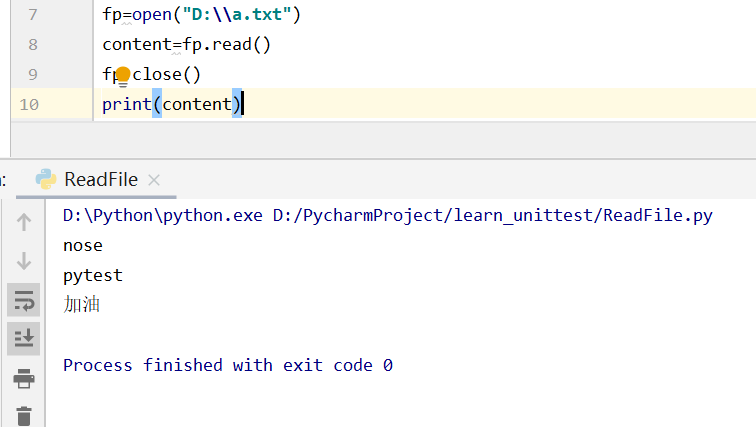class MikeError(Excepton):pass
print(1)
try: #将可能出现错误的代码放在try
if value=="type":,try 和except要同时出现,或者finally:
raise TypeError
if value=="zero":
raise ZeroDivisionError
IF VALUE=="all":
raise #只会让exccept语句拦截到
except ZeroDivisionError: #如果拦截则后面except其他语句被短路
print("除数是0的错误")
except TypeError as e:
print("Type类型错误") #a=1+"a"
print(e) #打印异常信息
except: #拦截所有异常错误,除了语法错误,如果try没有异常不执行except语句
print("some error occur!")
except MikeError as e:
print("MIke的代码出错“)
print(2) #拦截不到错误程序依旧崩溃
========================
class MikeError(Excepton):pass
print(1)
try: #将可能出现错误的代码放在try
if value=="type":,try 和except要同时出现,或者finally:
raise TypeError
if value=="zero":
raise ZeroDivisionError
IF VALUE=="all":
raise #只会让exccept语句拦截到
except:
print("some error occur!")
finally:
print("done")
print(2)
#except 必须有try,finally必须有try
class MikeError(Excepton):pass
print(1)
try: #将可能出现错误的代码放在try
if value=="type":,try 和except要同时出现,或者finally:
raise TypeError
if value=="zero":
raise ZeroDivisionError
IF VALUE=="all":
raise #只会让exccept语句拦截到
except:
print("some error occur!")
else:
print("no error")
print(2)
#读,写,追加
#读:open(参数1:文件路径,参数2:打开模式,参数3:文件编码)
文件路径:相对路径,绝对路径
fp=open("e:\a.txt",encoding='utf-8')
content=fp.read()
fp.close()
print(content)

操作系统有个资源句柄:一个指针指向了一个文件就可以操作文件了,例如读写。
句柄在操作系统资源有限,65535个。
如果所有句柄都被打开,且不被释放,句柄泄露。
读取一行内容:
fp=open("e:\a.txt")
print(fp.readline().strip()) #strip()去除空行
print(fp.readline().strip())
print(fp.readline().strip())
print(fp.readline().strip(),end=" ")
print(fp.readline().strip(),end=" ")
fp.close()
读取所有行到列表里
fp=open("e:\a.txt")
content=fp.readlines()
fp.close()
for i in content:
print(i.strip())
=fp直接遍历=====
fp=open("e:\a.txt")
for line in fp:
print(liine.strip())
fp.close()